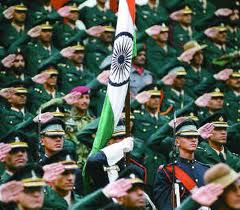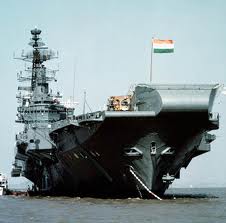The Indian Elephant in the Room
Posted by Andrew on Dec 19, 2011 in Culture, Public debate, Uncategorized | 0 comments
Have ever wondered where the phrase “The elephant in the room” came from? The first popular record is actually in the classic Mark Twain short story “The stolen white elephant”. In this story an Indian elephant goes missing in New Jersey while en route to England as a gift for Queen Victoria. A massive search fails to find the elephant which is in plain sight all along – hence the elephant in the room becoming a metaphor for that which is unavoidably obvious, and yet is ignored by all.
How apt that it should be an Indian Elephant?
For some years now the Australia-Indian relationship has been decidedly parlous. When you consider that Australia has been selling uranium to China for nearly six years now, and to Russia for almost as long, and yet only two weeks ago decided to allow the sale of uranium to India, one can understand why. What, you may ask is the difference. All three are huge nations which have Byzantine power structures, are opaque to outsiders and have complex relations with each other, not to mention the rest of the world.
Firstly can I draw attention to the difference between the Indian Elephant and the Chinese (and Russian) elephants. India is, although chaotic, confused, frequently corrupt and at times in its history more than a little communistical, the world’s largest democracy. China is not. And from the recent academy award nominated elections in Russia, it would be hard to confer the title democracy on that nation either. It is true, India is not a signatory to the non-proliferation treaty. Then again, Iran is. As was North Korea (until 2003). And China. China can be linked to wide ranging proliferation. Indeed who else does Pakistan have to thank for its ability to project thermo-nuclear weapons via ballistic missile. And where indeed are such missiles likely to be pointed? Which brings us back to India.
India has a less than positive relationship with China.
China has effectively applied a policy of encirclement to India. Tibet, Pakistan, Nepal, Sri Lanka and Burma are recipients of Chinese largesse and arms by the bushel. China opposed the Nuclear Suppliers’ Group endorsement of the US-India nuclear agreement, and made it quite clear that it was unhappy with the recent decision for Australia to sell uranium to India.
And right now Australia and India are in the process of building strong ties in maritime security, particularly in the South and East China Seas and the Indian Ocean rim.
This formed the bulk of Smith’s conversations with defence minister A K Antony and the naval chief, Admiral Nirmal Verma.
The defence ministry said, “Both sides agreed that challenges in the area of maritime security like piracy and freedom of navigation are important issues which required concerted efforts of the global community.”
Stressing that the India-Australia cooperation in this area was not China-centric, Minister Smith
said both countries reaffirmed the importance of law of the sea, freedom of navigation in international sea lanes.
Significantly, he said, that on territorial disputes, regional and international bodies have an interest in ensuring that these disputes are resolved peacefully.
This was a direct refutation of China’s claim that the dispute was “bilateral” and “outsiders” had no role to play.
In the recently concluded East Asia Summit, Chinese premier Wen Jiabao asked other countries to keep their noses out of the South China Sea dispute.
Smith said Australia led the maritime security group in the ADMM plus grouping, which focused on the dispute.
Smith also clarified that India was one of the few countries that had been briefed in advance about the US-Australia decision to base marines in Darwin in northern Australia.
“This is about enhancing our ship-to-shore capabilities,” Smith said.
The decision, he said, was a “practical manifestation” of the Australian argument that the “US was a force for stability and peace”.
China has opposed the US-Australia decision, saying they were against military alliances.
Australia is not faced with some arbitrary choice between the Chinese and Indian elephants. Strengthening ties with India will not damage our relationship with China. But in the 21st Century there
giant. One which has an incredibly young population. One that leapfrogged industrialisation to go straight to hi-tech, services and IT. One that has an increasingly vibrant and democratic government.
This giant is also edged by unfriendly states. It may not say so explicitly, but India is in the market for some quality friends. Australia should be one.
The government should be commended for taking this first step in the right direction.
The question is, with funding being hacked out of DFAT to be funnelled into Kevin Rudd’s flavour of the month AUS AID, whether these new times can be developed.
It is in both our interests to do so. This elephant is on the move and can be ignored no longer.






Recent Comments